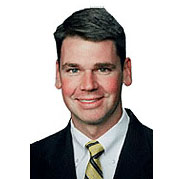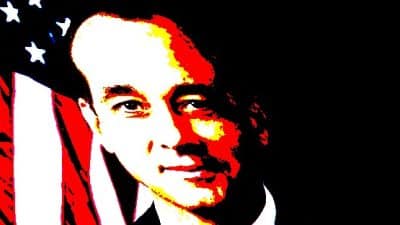
You may know some of our more famous horses. Secretariat, the 1973 Triple Crown winner, and Misty of Chincoteague probably come to mind first, depending on whether you’re an adult or a third grader. Both of these horses have achieved the status of Legend, but they were once living, breathing animals on Virginia farms.
Secretariat is memorialized in photographs, video clips and a movie released last year. My daughter Caroline loves that movie. The foaling shed where he was born still stands at Meadow Farm in Caroline County. The farm is now the site of the State Fair of Virginia, but they have been careful to preserve the shed.
Misty’s memorials include a commemorative plaque and statue on Chincoteague Island on Virginia’s Eastern Shore and two horseshoe prints set in concrete at the Island Roxy Theater where the famous horse attended the 1962 movie premiere. But the real attraction on the island is Misty’s preserved and mounted body. Her body, along with that of her foal Stormy, is on display at the Beebe Ranch.
I have mixed feelings about the stiff, glassy-eyed body of Misty on display, but of course Misty is not the only horse to be stuffed and kept around the house. Roy Rogers did so with Trigger, but contrary to popular opinion, Robert E. Lee did not have his horse Traveller stuffed and mounted. For a time Traveller’s skeleton was on display at Washington and Lee University in Lexington. In 1971, the university ceremoniously interred his bones just outside the campus chapel in which Lee and his family are buried and marked the spot with a gravestone.
The Civil War yielded other famous horses: Stonewall Jackson’s Old Sorrel, Maj. Gen Jeb Stuart’s Virginia, Maj. Gen Fitzhugh Lee’s Nellie Gray and W.I. Rasin’s Beauregard, the mount Rasin rode to Appomattox. Perhaps a little less famous but also notable was Fleeter, the horse of Belle Boyd, famous Confederate spy.
Yes, we love our horses in Virginia. They add so much to our lives on a personal level, and they certainly have added to the history and legends of Virginia. When I look at the big picture, I see just how much they contribute to our state’s economic well-being, as well. A lot of people don’t think of horses as part of agriculture, but they are a very important part. In fact, they are Virginia’s 8th top agricultural commodity.
We recently announced that the horse industry in Virginia has an annual economic impact of $1.2 billion, according to a study released by the Weldon Cooper Center at the University of Virginia The equine industry’s influence is felt in all parts of the state and we see a very positive effect on jobs, recreation, tourism, retail sales and state and local taxation. The horse industry in Virginia generated $65.3 million in state and local taxes in 2010.
The largest areas of economic impact are in Northern Virginia with more than 1,600 horse-related jobs in Fauquier and Loudoun Counties alone. However, the largest employment impact in the state is in Rockbridge County—the location of the Virginia Horse Center in Lexington. If you’ve never been to an event at the Horse Center, I strongly encourage you to go. You’ll find something for every taste, from the dramatic Arabian Costume Class show or a freestyle dressage exhibition to mule and draft horse shows. I could see my daughter standing on the back of a horse and commanding it with her toes to jump through a ring of fire, so I think we’ll confine our visits to rodeos, team penning or carriage class events for now.
As you can surmise, both participants and visitors to these events bring economic activity with them, not to mention a lot of jaw-dropping fun. Hotel nights, gas purchases and meals are just part of the economic mix. Some 939,000 people attended 1,200 Virginia horse shows and competitions last year, generating $25 million in revenue. Out-of-state participants spent an average of $3,100 per event in Virginia. Many of these events have accompanying trade shows and horse owners can swipe a lot of credit cards to buy new tack, riding outfits or the current year’s horse calendar and an I Love Horses mug.
Even though we have horses on our farms, I was surprised to realize that Virginia horse owners spend $873 million annually on horse-related expenses, including feed and bedding, boarding, training, tack, capital improvements and labor. These expenses average $4,060 per horse. Maybe I was surprised because my father-in-law boards and trains his own horses and he is teaching my children to ride at no cost to me.
As important as this economic activity is, here’s the area where I really take my hat off to horses. Virginia has an estimated 215,000 equines and some 41,000 equine operations, and the growing number of farms with horses is offsetting a more significant decline in farms in general. According to the Census of Agriculture Statistics, while the number of farms in Virginia decreased between 1997 and 2007, the number of farms with horses actually increased from 10,972 to 13,520 during that same period. I’m not suggesting that horses are reversing the decline in farmland, but they are the only positive side of that equation that I am aware of. So for all horses do for us, I welcome them – visitors and residents alike – to the Commonwealth.
Note: The full equine economic impact study is available on the University of Virginia Weldon Cooper Center website, coopercenter.org/econ (click on link in the news and events section). Highlights of the survey can be found on the Virginia Horse Industry Board website, vhib.org.
Matthew J. Lohr is the commissioner of the Virginia Department of Agriculture and Consumer Services.










